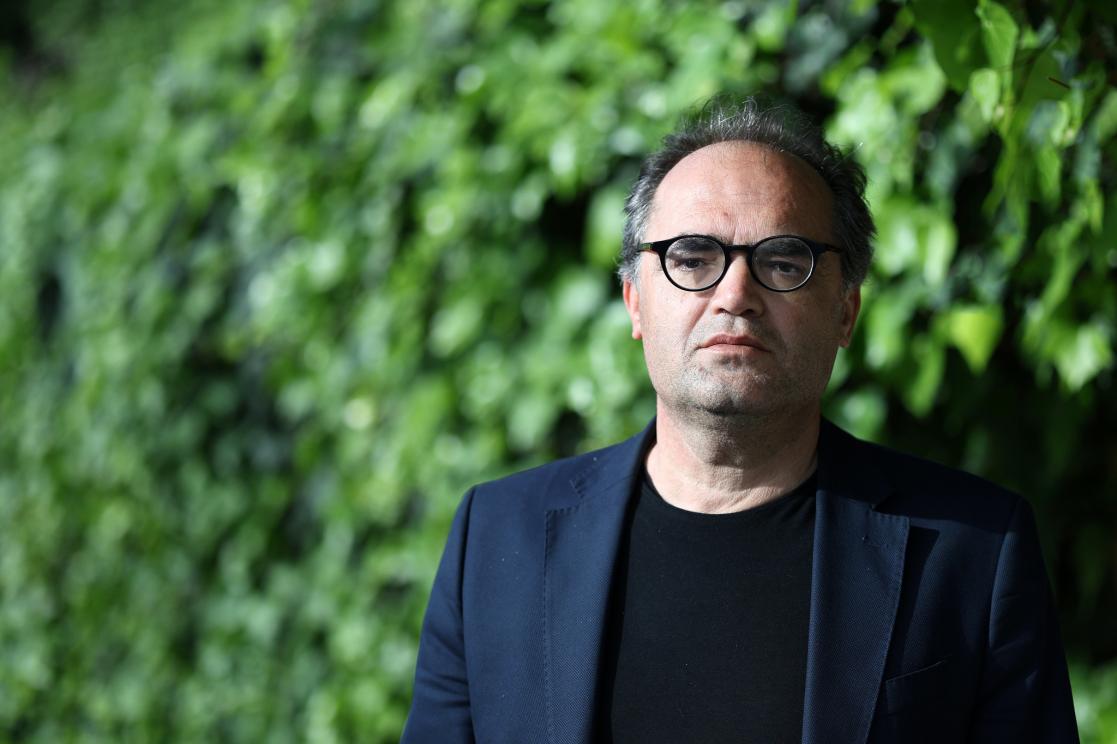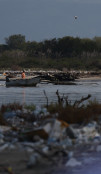The impossible meeting with the missing father – EU support in finding missing persons during the communist regime

Jovan Plaku saw his father’s image for the first time in a photograph hidden in a locked wardrobe. He was 6 years old, he had never met him, and at home, his name was never mentioned. Yet, he did not know why. “I removed the pin hinges of the wardrobe’s door using a nail. I found photos of my father as a groom with my mother, diplomas and a list of seized items; among them, a bag with fishing hooks. This is how I learned I had a father, but not his fate,” recalls Jovan Plaku, the son of Koço Plaku, an engineer executed by the communist regime in Albania, in 1976. Koco Plaku was executed after a judicial process known as “The oil group” where two engineers were sentenced to death penalty and six others to imprisonment.
He didn’t tell his mother about the photo and only after Jovan learned how to read, he revisited the documents in the wardrobe. From that day he started dreaming and questioning himself, “can I meet my father, where is he, what has he done, is he upset with me or with my mother?”

EU in Albania
He kept hoping that one day he would meet his father, until he was 9 or 10 years old and went to a peer’s home to play. His friend’s father asked Jovan if he had any memories with dad. “I didn’t know how to answer. Nobody used to mention my father, so I was surprised and unsure how to respond. I was just 9 months old when he was arrested, I had no memory of how he looked until I found the photo. So, I did not respond a word. Then he said that I should not be ashamed of my father because he was an extraordinary man. He told me that my father was killed because of being in possession of fishing hooks. ”This is how and when I found out my father was not alive,” says Jovan, thinking about the moment he did not know if there was still hope.

EU in Albania
Accused of ‘sabotage in the oil sector’, ‘agitation and propaganda’, Koço Plaku’s body was never given to his family after the execution. After his arrest, my parents were divorced, to avoid the conviction of my mother – his wife - and the deportation of both of us. Because of the divorce, we were never officially informed about his fate.
Until the fall of the communist regime, Jovan and his mother still had a faint hope that Koço Plaku was still alive in some prison. When his father’s friends were released from prisons, there was no room for doubt. He then felt he had another duty that of finding his father’s remains to give him a decent burial.

EU in Albania
“I started searching for my missing father when I was a student. I have done everything I could: I searched in the archives, I found his file, I found a recording of his voice in the trial- at least I could hear his voice. I have also met people who have told me the tortures, the questioning process; I have met people who used to work for the former State Security. I have even met people from the firing squad, people who were present in the executions, people who told me the area where my father was executed. I have been there, near a military area in Dajti Mountain in Tirana. In the ‘90s, we have dug into the ground but we couldn’t find him,” says Jovan, almost desperate after 30 years of searching for his missing father.
His entire search was based on a detail that would identify him. “My father was a tall man and his foot size was 46 and a half. Not a lot of people have that foot size. In one of our excavations, we found some shoes, but none of them of this size,” he recalls.
Thousands of people missing
Koço Plaku is one of almost 6000 missing persons from the communist regime in Albania. The exact number remains unknown, but specialised organizations estimate the number around six thousand Albanian citizens who were executed, have died in prisons or in labour camps, and were never given to their families or found after the regime collapsed. They were buried in unknown locations, sometimes in massive graves with no signs that would identify the presence of a grave.
Until 2018, many families have searched privately for the remains of their relative, and some, have even succeeded in finding them. However, thousands of others, like Jovan Plaku, did not despite the 30 years of efforts and searches in different locations.
In 2018, the Council of Ministers of the Republic of Albania and the International Commission on Missing Persons (ICMP) signed a Cooperation Agreement to advance efforts to locate persons who went missing during the communist period in Albania, between 29 November 1944 and 2 July 1991.

EU in Albania
“We were hoping that the process would be easier than in other countries because here there was no war. ICMP's mandate is to assist throughout the process in providing information on potential locations of gravesites, visual reconnaissance of sites, excavation, forensic examination of recovered human remains, and DNA testing. However, the process should be led by Albanian institutions and until now, we haven’t participated in any excavation related to the victims of communism in Albania yet,” says Luigj Ndou, Head of Government Relations at ICMP in Tirana.
Luigj explains that the process is complicated as ICMP considers that any unmarked or illegal gravesite can be a crime scene. “So, the judicial bodies are the ones who must give the order to carry out exhumations. In Albania, this has not happened yet, as there is no legal process for the recovery of missing persons. Despite the goodwill of ICMP and of other international institutions, there is still no structured process to resolve this issue. In our view, it is essential to close the chapter of the past to look towards a peaceful future,” affirms Luigj Ndou.
According to him, after several years in Albania and recommendations on the process, other efforts will take place this year, excavations in six locations, where the Albanian Authority for Information on Former State Security Files has already conducted administrative investigations for possible gravesites of ex-political prisoners. “This year, with the support of the EU Delegation to Albania, we will mobilise our identification data management system to help the Albanian state to create a unique database or a unique register for all missing persons in Albania, who are victims of the communist regime. We also plan to support civil society’s efforts involved in dealing with the past. With serious efforts, genuine political will, and concrete actions, we believe a certain number of these people can be identified,” notes Ndou.
Jovan Plaku was one of the first missing persons' relatives to give his DNA sample, in case remains are found. His father was accused of sabotaging oil searches after a friend brought him fishing hooks from Russia. Now, his son has the same passion. “I still go fishing,” adds Jovan with pride. Jovan, has only associated his father, first with a photograph, and then with a voice recording. Now he feels the need to be proud and honour him. “In our culture, honouring the dead was sacred, now I am wondering if it really was,” says Jovan Plaku, a tall man like his father.
Background information
Since 2017, the European Union is supporting Albania to find the missing persons during the communist regime, by empowering the security of files’ technical capacities, awareness-raising prerogatives and by increasing its coordination role. The International Commission on Missing Persons (ICMP) implemented two projects for a total of approximately 1M€ EU contributions. A new project on “Supporting transitional justice and dealing with the past in Albania” with ICMP, started in February 2024 and aims to increase the engagement of the Albanian state institutions in resolving missing persons issue as a legacy of the past and increase social cohesion in Albania.





